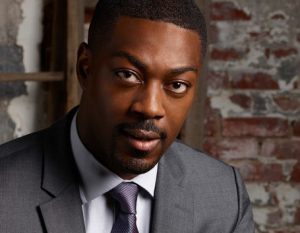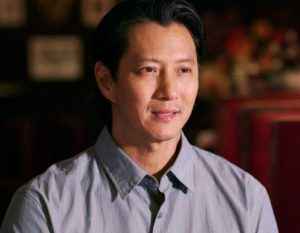(This will be a long one.)
With four episodes under my belt, USA’s Falling Water is my favorite new show this season. I will not be alone in this, but I will be in a fairly select group, because Falling Water’s tropes are only going to appeal to a certain kind of audience.
The story is a science-fictional thriller, set in today’s world, about dreaming and some sort of communal consciousness. (I refuse to call it the “collective unconscious.”) Set in New York City, the show follows three characters, each of whom has a compelling personal life problem, who soon discover their dreams overlap – and who begin to appear in each other’s dreams. The story is not merely personal; there is global price manipulation of rare earth metals; a dream cult; numerous deaths and a sense that if commodities prices can be manipulated, so can many other things… like elections? National security?
The plots radiate out like a reverse-onion. We started in the center and are peeling back walls on our way out; the word Topeka; a dream experiment hosted by a mysterious billionaire; a child’s face; the death of a mysterious woman on her way to meet with the Belgian Ambassador to the UN, followed by the deaths of twelve people, each wearing green sneakers, in a suburban house; a hint of insider trading; a suicide; an explosion.
The show reminds me of the first season of Lost, back when I was completely captivated. Fortunately, we don’t have quite as many characters to follow, although more and more secondary characters are becoming important. Basically, though, our three; Tess, a trend-spotter and designer; Burton, the security manager at a Wall Street brokerage and Taka, an NYPD detective, are the people whose waking and dreaming lives we see the most.
Why is Falling Water working? Mostly, a high-end ingredients list makes this show. High quality writing is interpreted by a stellar cast with stunning visuals and intriguing/menacing sound editing, and it all feeds what is, so far, a compelling story.
The perfect mesh of character with casting:
Tess is smart, strong, gifted and vulnerable. In her teen years she was institutionalized for a stretch. During that time, she is convinced she had a child although there is no evidence she has ever given birth. In her dreams, she is pursuing her son, now a six-year-old blond boy who likes to play catch with a green tennis ball. Lizzie Brochere’s delicate features with her huge anime-character eyes expertly capture Tess’s vulnerability and her strength. I’m not a fan of the super-skinny female actor, but Lizzie’s slimness adds an important waifishness to this role. Brochere delivers Tess’s lines perfectly, whether it’s a sarcastic throwaway about how she got into the dream study, an argument with her charismatic, controlling mother, or the sense of complete freedom and confidence she shows in her dreams. Brochere plays Tess as a somewhat muted character who delivers most of her emotional punches through nuance, and every punch delivers.
Burton works for a Wall Street firm. His brief, security, encompasses personal and cyber – basically he’s a “fixer.” Burton dreams of his relationship with a beautiful woman, a relationship that is broken and may be ending… if the woman even exists outside of dreams. He uncovers a scheme that looks, at first, like insider trading, and he is the first one to see the clue “Topeka.” We don’t know Burton’s background but it’s easy to imagine military intelligence or special forces of some kind, and David Ajala brings a fluid, observant self-discipline and control to the character. So much of the information revealed in this show is done visually, with little or no dialogue, and Ajala communicates a sharp intelligence and a hidden, wounded heart with one flick of his gaze, or one twitch of his lips. In Episode Four, watching him trying to decode the recurring dream sequence strategically was a sheer delight. In that same episode, watch Burton’s reaction when he walks into the blue corridor and does an environmental scan, and you will see just how fully Ajala has embodied his character.
Taka is a detective. Okay, I admit it, if I’d known nothing more about the show except that Will Yun Lee was in it, I would have checked in right there. I have liked him since he played Sara Pezzini’s ghost sidekick on the (admittedly disappointing) TV series Witchblade. Here is a chance to see him playing a lead, not a secondary character and not a villain. Taka is a cop who trusts his intuition, and in some ways is nearly as vulnerable as Tess. His mother is in a catatonic state and he visits her regularly at an institution; he talks to her and does nice things for her, and there is a love and desperation in those scenes that tugged at my heart. In cop mode, he makes connections and sees patterns that others really hope he won’t see. Will Yun Lee lets us see Taka thinking, sharing those patterns… and also lets us feel his sense of loss.
Exquisite visuals:
A show about dreaming should rely on visuals, and Falling Water glides on them. Images matter; they’re often clues, but even shots that don’t contain clues are beautiful and meticulous. The repeated images of Burton’s office building from the outside, in a canyon of steel and glass, mirrors the photo of the falling/flying man that matters to Burton (and, it seems, may matter to Tess).
Whether it’s the slo-mo swirl of Taka’s mother’s skirt as she dances in a dream, the gleaming cityscapes, the Italian restaurant or the shimmering cloud of ash that enlightens Taka and inspires Tess, the visuals are stylish, stunning and congruent with the story that’s unfolding.
Sound editing and music:
There is low-pitched rumble that indicates strangeness or danger that occurs at rare times throughout the show; just one more element pulling the viewer into this strange waking/dreaming world. Music is chosen well, whether it’s twangy blues or lush vocals during a dance.
Quality writing:
Line by line dialogue is well-done. This is a show stuffed with clues and it is hard to write that in a way that doesn’t feel clunky. These writers manage. In Episode One, an aside between Burton and a seeming-doofus trader named Woody, about how not to use your work cell phone, turns out to be very important indeed. The three-way argument with Tess, her psychologist mother and psychologist sister is loaded with information, tense and intense, and wildly believable – and I mean “believable” in the sense that I think one of these writers must have that mother as a mother.
They do a good job of using secondary characters – like Burton’s boss or the eccentric billionaire – to deliver exposition in a way that is palatable (even though we do think the billionaire is lying). Part of this, again, goes to the interplay of fine writing with able actors.
Mostly, though, the writers have convinced me that they do have a vision and a through-line. Falling Water gets compared sometimes to USA’s award-winning hit Mr. Robot, and I was a little worried about its first season, but it delivered. Falling Water delivers solid, thought-provoking entertainment.
I’m worried:
Could they still blow it? Absolutely. They could become fear-driven and aim for a cliffhanger ending as a superstitious attempt to ward off cancelation rather than trusting the story to unfold at its natural pace (staying true to the vision, in other words). They could do the Lost thing… whatever that was, which seemed to be adding everything including the kitchen sink into the mystery. That would sink Falling Water without a ripple. The scale of the show is one of its strengths.
I’m also worried about how Gibsonesque (Gibsonian?) Falling Water is. This is an odd worry to have, because the Gibson-like touches (I’m thinking specifically of Pattern Recognition, Spook Country and Zero History) are part of the joy of the show. Still, Tess and the Bill Boerg character are frightfully close to Cayce and Bigend, and the sense of the global price-fixing; a glimpse of the larger work that we might not see again—echoes a common Gibson theme.
So, the show could implode at a moment’s notice, but, somehow, I don’t think it will. I look forward to seeing what comes next.
Links:





